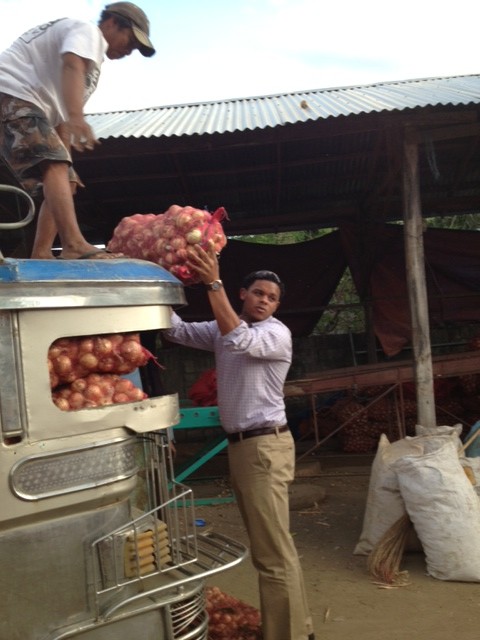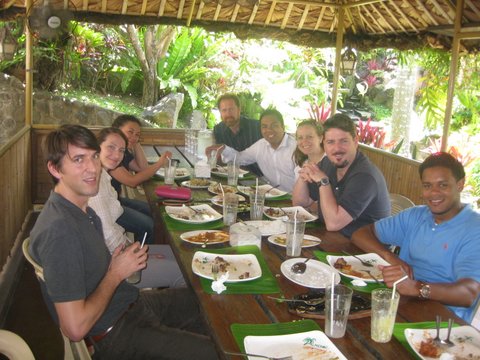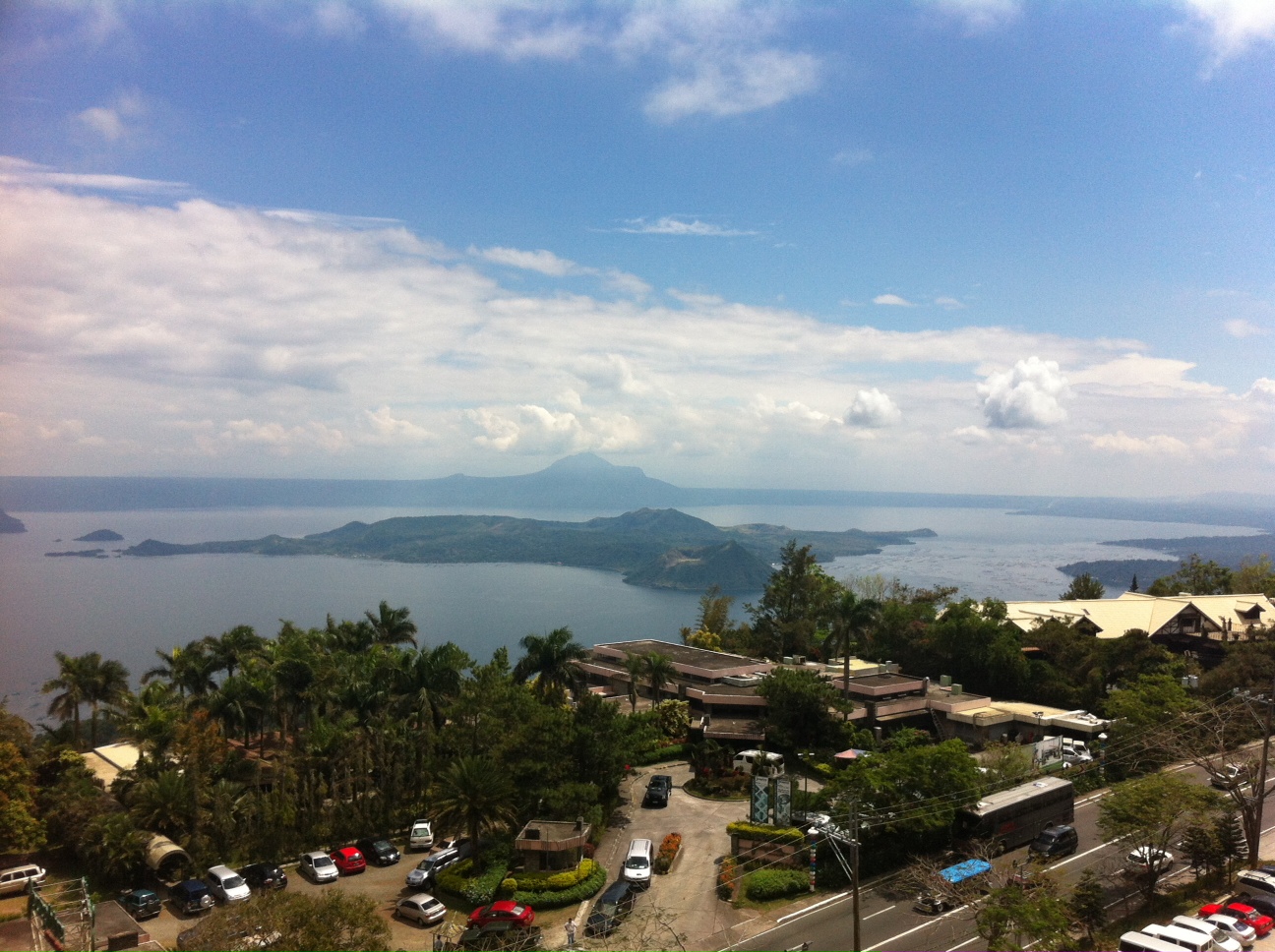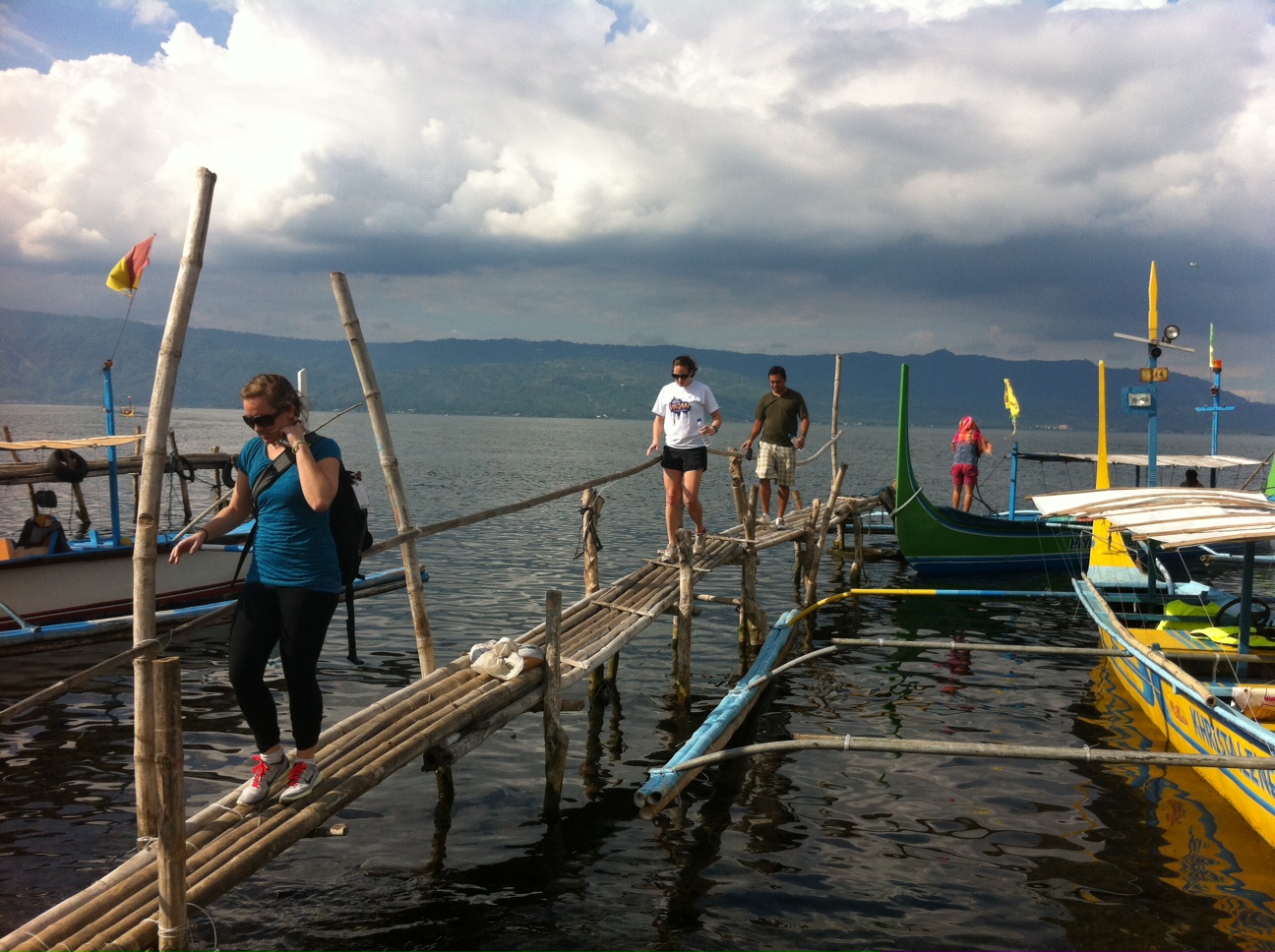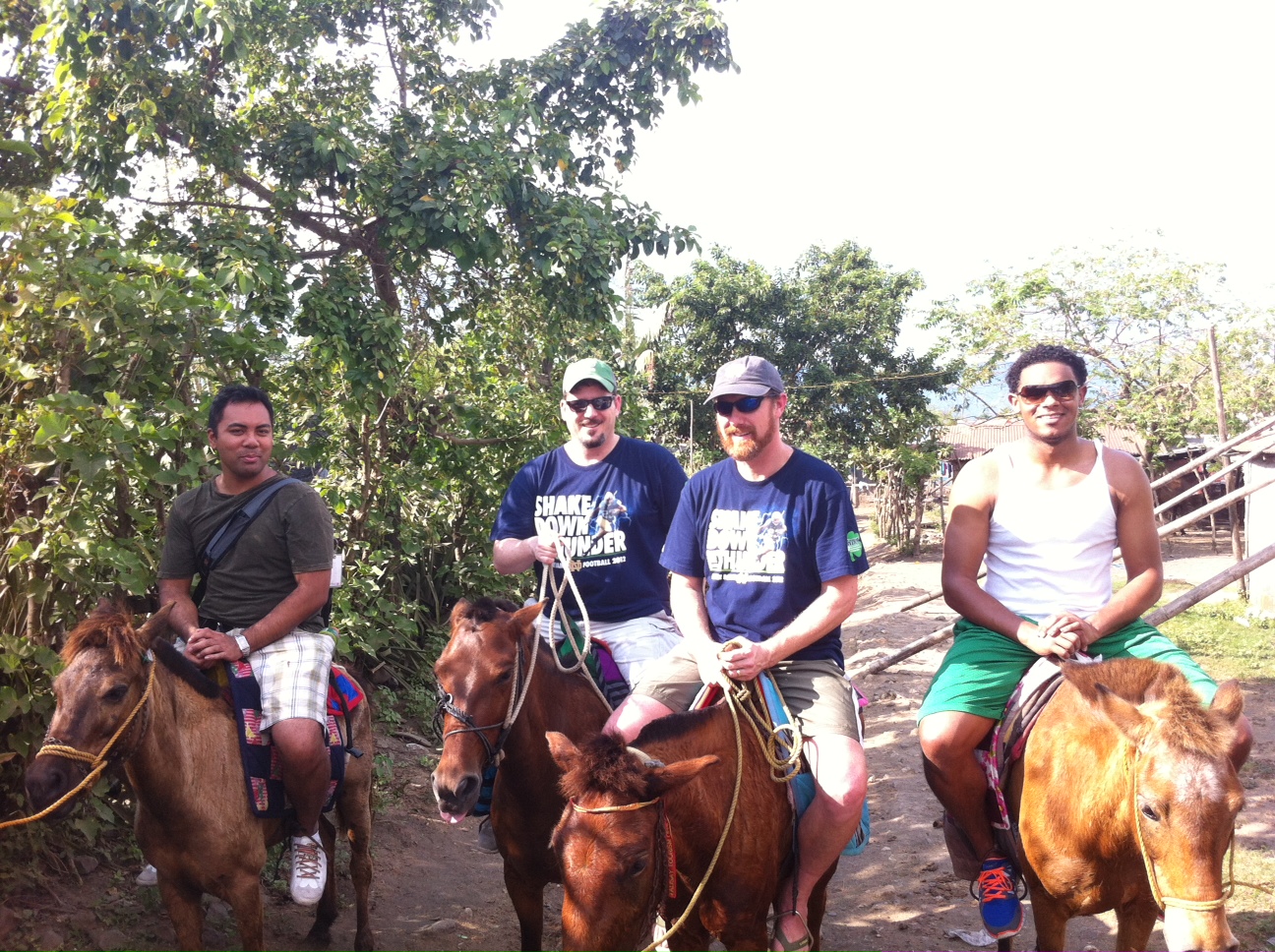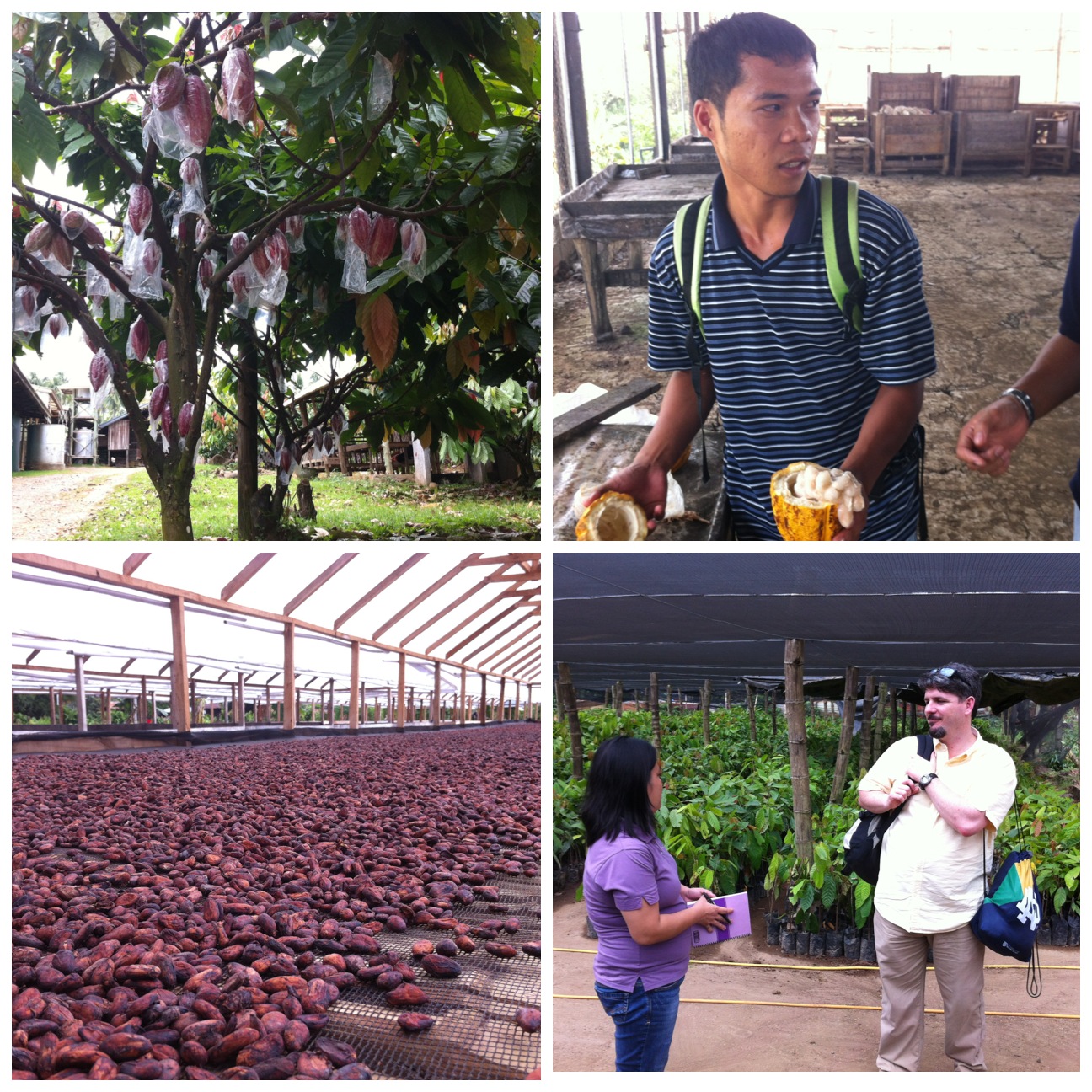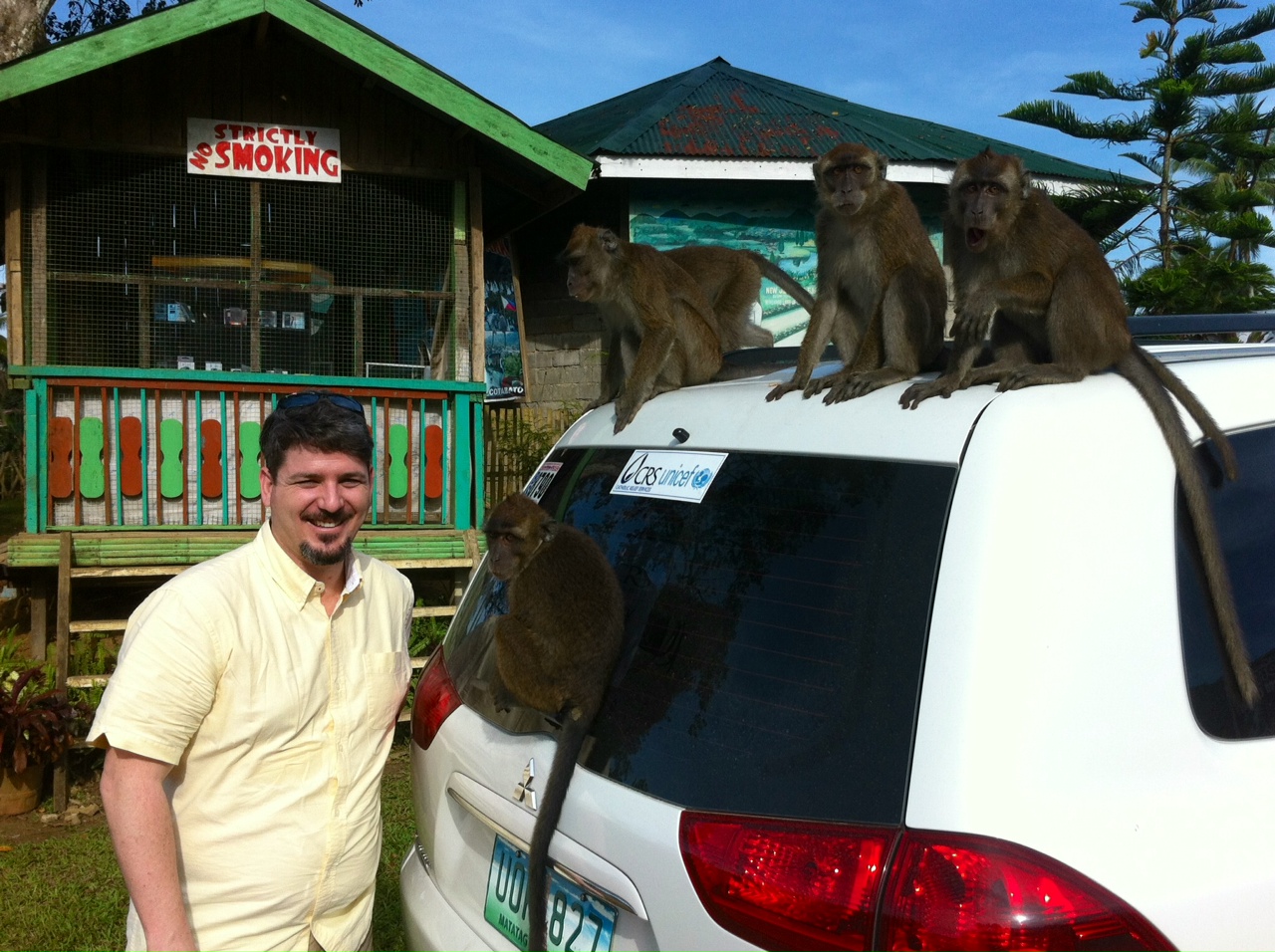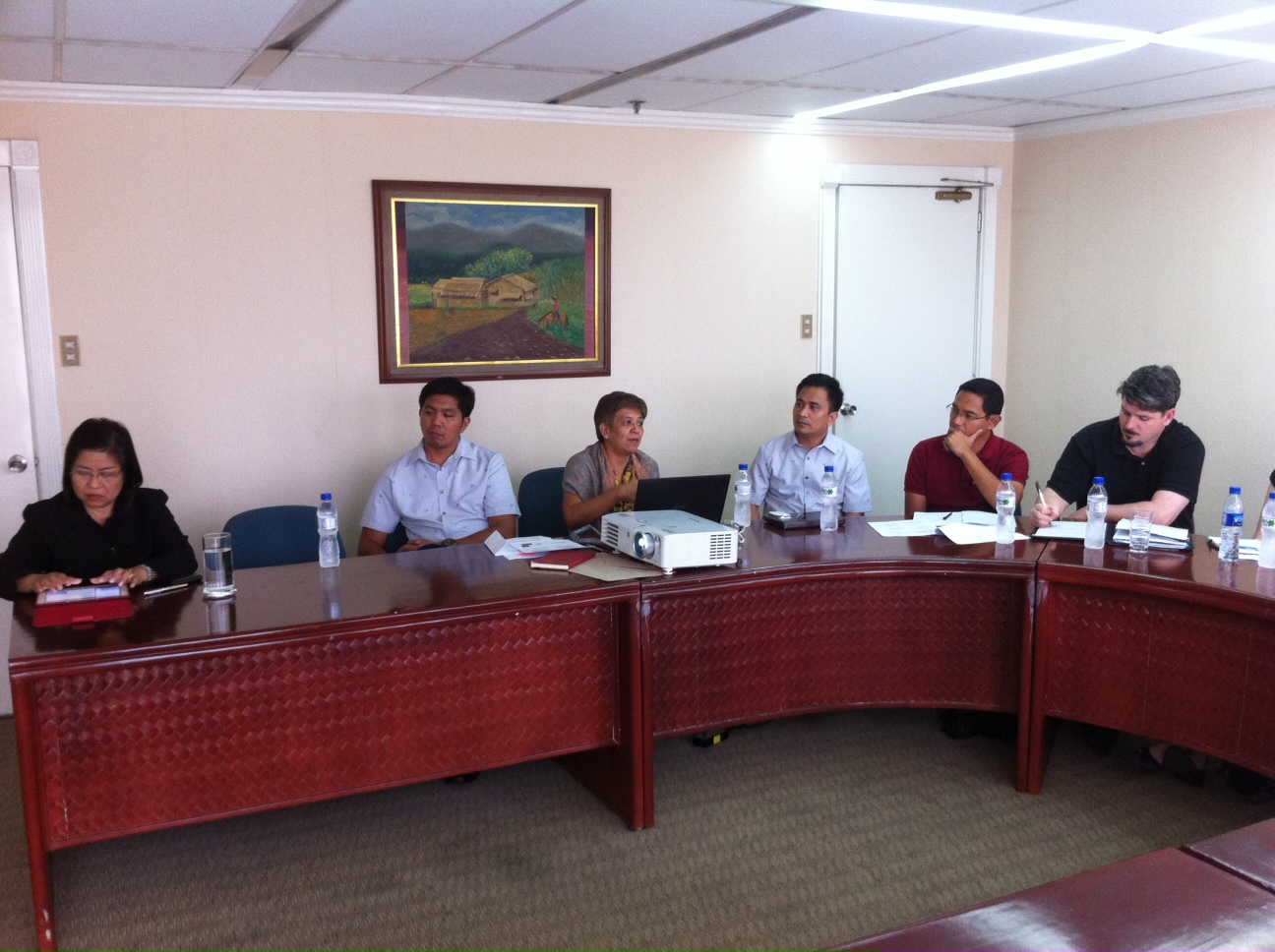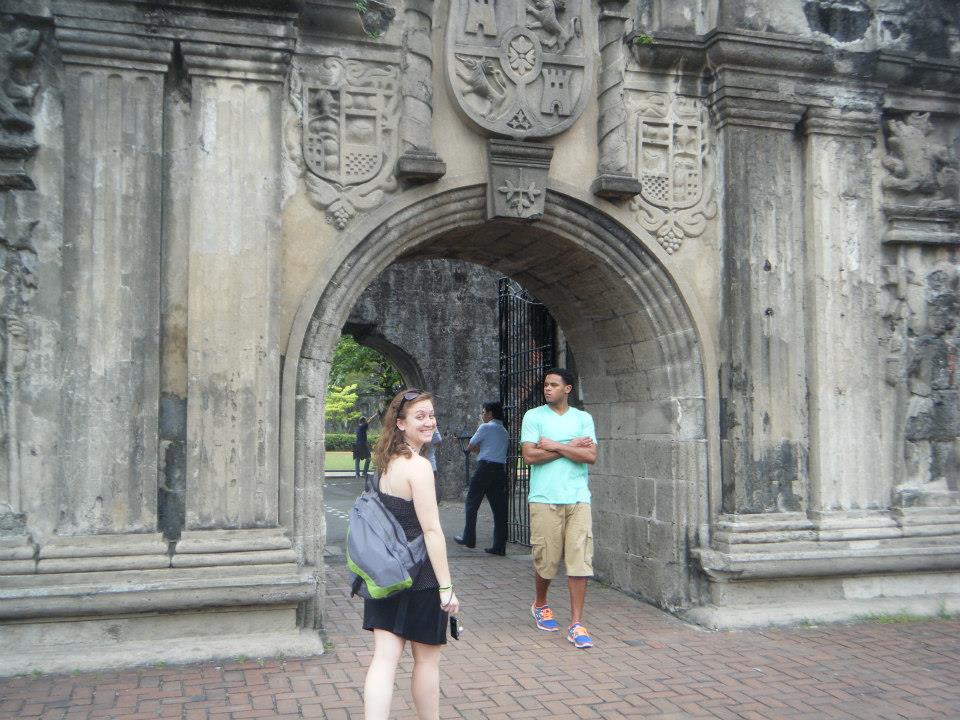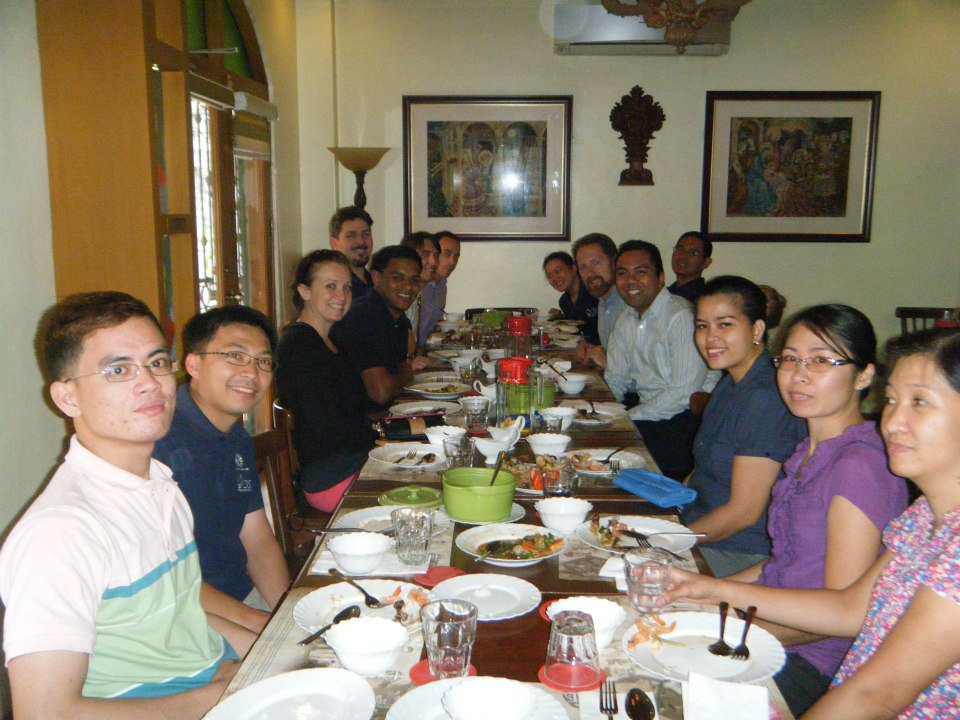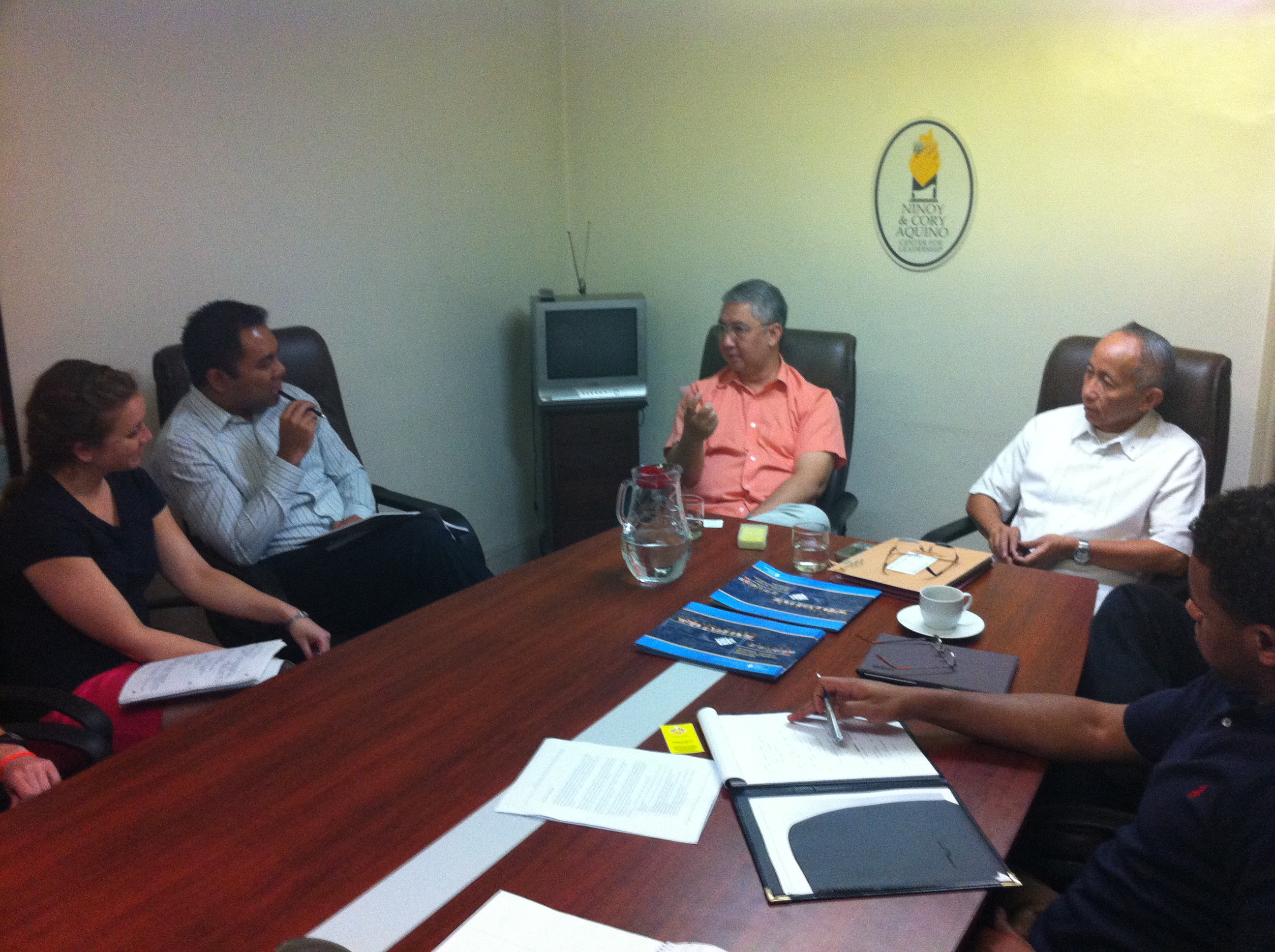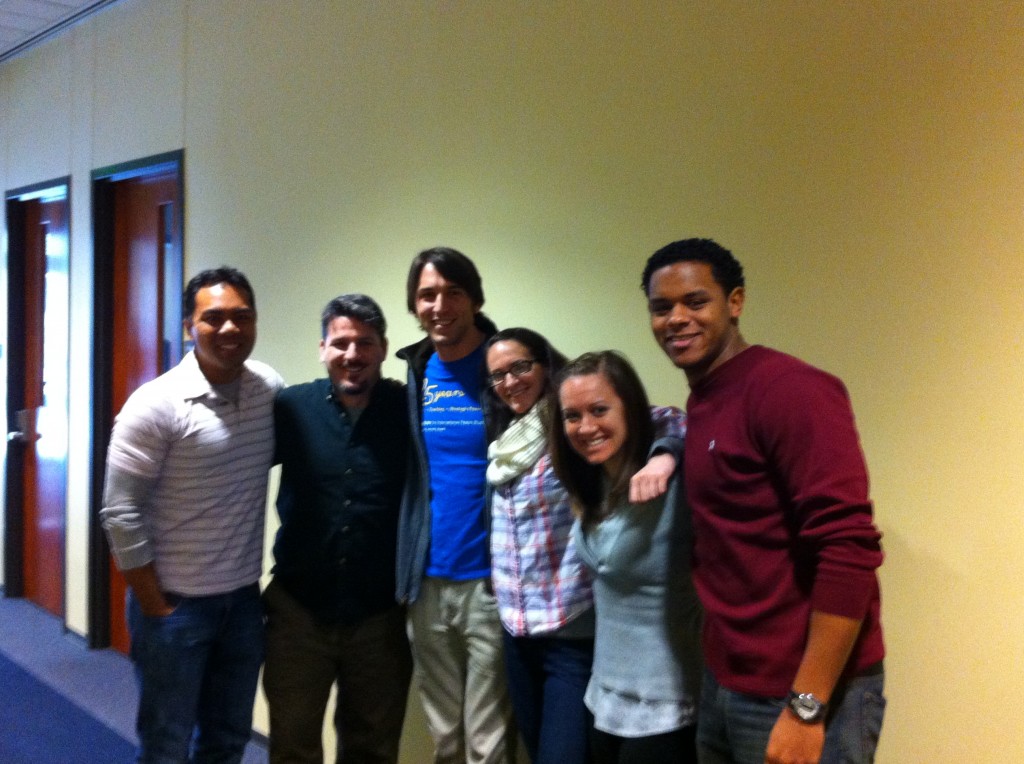After being separated for most of last week, Team Philippines reunited in Manila after visiting cooperatives, lending institutions, and farmers in two different locations: northern Luzon (far north of the Philippines) and Mindanao (far south of the Philippines). In our last post, we mentioned our rejuvenating day off in Tagaytay. The beginning of this week has involved more site visits, including interviews with Filipino coffeeshops, institutional buyers of vegetables, government-owned financial institutions, microfinance NGOs, and government programs that secure agricultural loans for lenders and borrowers.
Here’s a sampling of some of our visits:
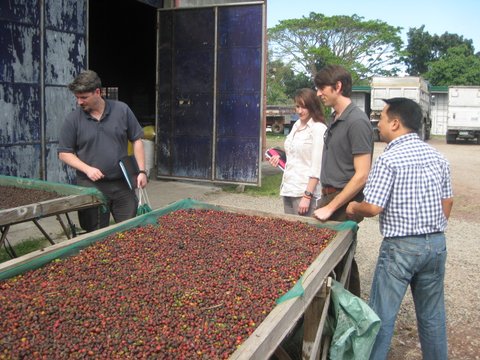
The drying facilities for Cafe de Lipa, a Filipino coffeeshop that sources most of its beans from local farmers.
The meetings and interviews that we have had over the past 10 days have been incredibly relevant to our task of evaluating the financial needs of small farmers in the Philippines. Tomorrow (Thursday) is our final day of meetings and Friday we will present our observations, findings, and recommendations to CRS. The past few nights we’ve been working late after full days of meetings, trying to categorize everything we’ve heard and identifying where there is room to introduce new loan products (or expand the reach of existing financing) to farmers to address current gaps in financing. Our thoughts will hopefully come together into something coherent and productive in the coming couple of days, we’ll keep you posted.
